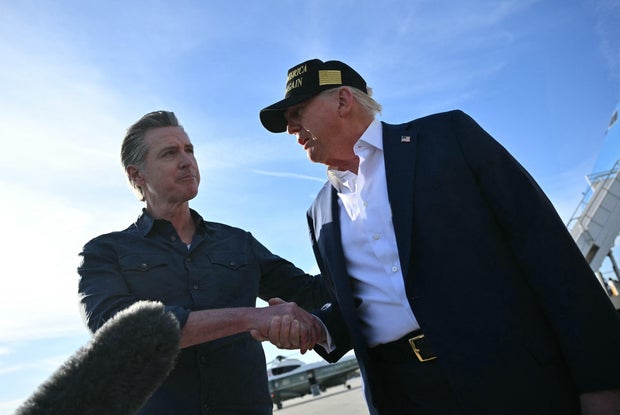In a recent and highly charged legal confrontation in the U.S. Ninth Circuit Court of Appeals, a cadre of judges meticulously debated the extent of presidential authority against the backdrop of federal troop deployments in Los Angeles, California. This legal battle starkly highlighted the tensions between state sovereignty and federal power, drawing into question the constitutional limits and responsibilities of the President of the United States in utilizing the National Guard for civil unrest situations.
The Context and Background of the Deployment
The controversy began when President Donald Trump, citing powers under Title 10 of the U.S. Code, elected to deploy over 4,000 members of the California National Guard into Los Angeles. The city had become a hotspot of fervent protests following expansive immigration raids by federal authorities. These operations were part of a larger federal crackdown aimed at enforcing immigration laws and initiating mass deportations, a cornerstone policy effort of the Trump administration.
The President’s decision was labeled as a response to what he termed a “rebelleion-like” situation caused by the protests, which he believed posed a direct threat to federal operations and personnel. However, this action came with significant controversy, particularly surrounding the bypassing of California’s Democratic Governor, Gavin Newsom, who had vociferously opposed the idea of federalizing the state’s National Guard troops.
Judicial Hearings and Arguments
The legal challenges were swiftly mounted, and the issue escalated to the Ninth Circuit after a district court judge ruled against the deployment, tagging the President’s actions as overreaching. During the hearings, the court was presented with compelling arguments from both sides.
For the Trump Administration:
Assistant Attorney General Brett Shumate defended the President’s actions vehemently, arguing that such decisions under Title 10 are beyond judicial review, asserting an inherent executive privilege to use military resources as deemed necessary without interference from the courts. Shumate emphasized the potential risks to public safety and federal operations if the injunction handed down by the district court were to persist.
For the State of California:
Sam Harbourt, a deputy solicitor general for California, countered by pointing out the broad and sweeping implication of the federal order which, according to him, lacked any nuanced consideration for less drastic measures before resorting to federal troop deployments. Harbourt highlighted the dangerous precedent such unilateral federal actions could set, potentially escalating tensions rather than quelling them.
Judicial Deliberation and Perspectives
The panel of judges, which included two appointees of President Trump and one of President Joe Biden, exhibited a nuanced concern for the balance of powers and the specific details surrounding the deployment order. Judge Mark Bennett questioned the necessity for considering alternative measures before the President could activate the National Guard under Title 10, probing the legal requirements and precedents that bound such decisions.
In contrast, both the state and federal presenting lawyers delved into historical interpretations and the intent of the statutory provisions under Title 10, which typically allows for the federalization of the National Guard under specific circumstances like an invasion, a rebellion, or when federal law enforcement is impracticable with regular forces.
The Underlying Legal and Constitutional Questions
The crux of the legal debate rests on several pivotal constitutional and statutory interpretations:
- Presidential Powers vs. State Sovereignty: The extent of the President’s authority to deploy National Guard troops without state consultation.
- Judiciary’s Role: The capability and responsibility of the courts to review executive military decisions.
- Statutory Clarity: The interpretation of Title 10’s requirements and the procedural adherence to them, particularly regarding the engagement of state executives such as governors.
Conclusion and Broad Implications
As the Ninth Circuit deliberates on these weighty issues, the outcome is set to have profound ramifications, potentially shaping the contours of civil-military relations and executive authority in the United States. At the heart of this is a broader discourse on the role of military forces in domestic affairs and the delicate balance that must be maintained to preserve democratic norms and civil liberties in times of national crises.
This case not only tests the boundaries of presidential power but also serves as a critical reflection point for governance, federalism, and the rule of law in increasingly polarized times. The decision, when it comes, will undoubtedly be a significant addition to the annals of legal and constitutional history in America.









